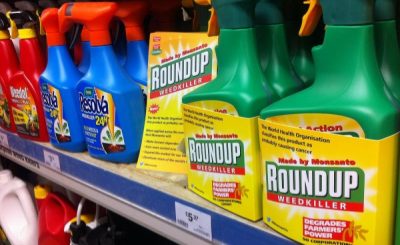Glyphosate Risks ‘Last for Generations’
A new study found diseases caused by glyphosate in second and third generation offspring of lab animals exposed to the herbicide.

Increased prostate, kidney and ovarian diseases, as well as heightened obesity and birth abnormalities were found in the offspring of lab rats exposed to glyphosate, a scientific study has found.
The new research is the first of its kind to look at the transgenerational effects of the world’s most commonly used herbicide, first sold as Roundup, showing its carcinogenic properties are passed down at least three generations.
“This study provides alarming new evidence supporting our public health call to take glyphosate off the European market,” said Génon Jensen from the Health and Environment Alliance (HEAL).
Banned
“If a pesticide is showing harm which only occurs generations down the line, surely this is an opportunity for the European Commission to take more precautionary measures to protect our health.”
Despite the fact the World Health Organization’s International Agency for Research on Cancer (IARC) declared glyphosate to be a ‘probable human carcinogen’ in 2015, the herbicide was reauthorized on the European market for a period of five years in 2017.
A European Citizens’ Initiative petitioning to ban glyphosate has already been signed by 1.3 million people, and the European Commission recently appointed France, Hungary, the Netherlands and Sweden to assess whether or not the pesticide should be banned after its current licence expires in 2022.
Toxicology
In theory it would be possible for the EU to take glyphosate of the market before 2022.
“As an emergency measure, both the EU and individual member states have the power to end the current glyphosate approval before the five year periods,” explains Yannick Vicaire from HEAL.
The organization Pesticide Action Network recently released a report listing a wide range of more environmentally friendly alternatives to glyphosate, showing a ban of the herbicide would also be technically feasible.
“The ability of glyphosate and other environmental toxicants to impact our future generations needs to be considered, and is potentially as important as the direct exposure toxicology done today for risk assessment,” the authors of the study stated.
*
Note to readers: please click the share buttons below. Forward this article to your email lists. Crosspost on your blog site, internet forums. etc.
Arthur Wyns is a biologist and science journalist who writes about climate change, environment, health and migration. He tweets from @ArthurWyns.
Featured image is from The Ecologist

